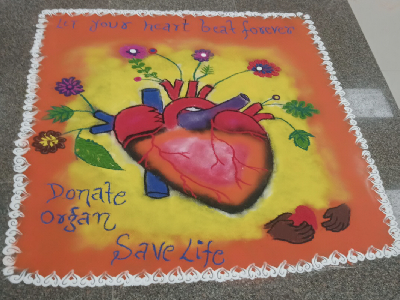- What is it?
- Signs of academic burnout
- Academic burnout among medical students
- Why do medical students suffer more?
- How can you prevent it?
- How to help yourself?
Do you experience a lack of motivation? Being drained and agitated? You’re not as inspired or as imaginative in your schoolwork as you used to be. Burnout depletes you and leaves you demotivated and jaded. You can’t start anything at all because you feel like there is simply too much to do and that nothing you do would suffice. In academia, issues about mental health aren’t new. It’s plausible that you are experiencing an academic burnout, most students have this relatively common condition, yet it remains undetected purely because of ignorance. If identified, it’s effectively treatable.
What is it?
Academic burnout is regarded as a negative emotional, bodily, and psychological response to comprehensive curriculum that causes exhaustion, disillusionment, loss of motivation, and subpar academic performance. It results from months or weeks spent studying the same content or focusing on the same topic, or from years of education that was not paused. This shouldn’t be confused with the infrequent feeling of unhappiness after putting in a lot of study time or weariness after working late. It’s more of a long-term condition spurred on by intense academic or learning effort.
Scholars from all fields reveal significant levels of anxiety, signs of academic burnout, and even depression due to the many difficulties faced by researchers, including the emotionally taxing nature of their work, the intense stress to publicize, the instability of their financial situation, and uncertainty about their future employment even after working for a considerably large amount.
Signs of academic burnout
Academic burnout symptoms include far more than just being worn out and having no desire to attend any more classes. Since stress can result in actual, psychosomatic issues like aches, sleeplessness, and depression, it becomes crucial to start reversing burnout as soon as you notice the early signs.
- You feel exhausted despite getting enough sleep, which results in lethargy and sleeplessness.
- Lacking the motivation or will to finish homework or to attend lectures.
- Irrational outbursts and an inexplicable restlessness brought on by despair.
- Feeling uninspired and lacking the drive to execute tasks and class discussions.
- Losing faith in one’s intellectual abilities.
- Failure to meet significant deadlines.
- Increased physical tension and pain, which may appear disguised as headaches, achy muscles, or jaw tension.
- Stress and fatigue causing diseases and distress to occur even more frequently.
- Increase in bad habits like recklessly spending, sleeping in too late, biting your nails, or any other habit you prefer to pick up when you’re subjected to stress or being negligent towards yourself.
- Inability to maintain focus during lectures or on schoolwork.
- Feeling disinterested or bored with portions of school or activities you used to enjoy.
- Anxiety, depression-related or inexplicable range of emotions.
Academic burnout among medical students
Medical students are still advised to persevere through their battle with burnout despite the overwhelming strain brought on by long study sessions, consecutive bombardment of tests, competitive environment, and the ever-evolving nature of medicine. The negative impacts of postgraduate medical burnout can soon affect the college and the local community. The learning environment degrades when pupils are physically exhausted and have high levels of skepticism. First-year medical students are likely to develop unfavorable attitudes if students aren’t provided with proper support for dealing with stress. Furthermore, it reflects itself in their personal affairs. Compared to non-medical students with similar abilities, medical students are more likely to indulge themselves in substance abuse.
The coping mechanisms for personal stress include consuming more alcohol, adopting an overall pessimistic and nihilistic approach towards life, and retreating socially. Even worse, some students may engage in disruptive behavior that hampers both their relationships with friends as well as family. If burnout sufficiently affects a medical student’s personal life, they may even decide to completely change their career path.
Why do medical students suffer more?
- Increasing time limitations -Most students spend most of their time in medical school. A medical student who feels the strain of a demanding study schedule may miss significant social or family gatherings. If a medical student is unable to find a more sustainable schedule or work-life integration, relationships may become strained or even come to an unfortunate end.
- The “absence of mental problems in doctors” – A hoax that physicians and would-be physicians don’t cope with mental diseases like depression or anxiety is a significant contributor to burnout among medical students. Medical students may feel alone and in their battle against mental illness because of the stigma attached to seeking treatment.
- Unreal standards - Medical students may feel unqualified because of sky high expectations from their parents, lecturers, and even themselves. Students who experience feelings of inadequacy may internalize their burnout symptoms even more since they refrain from showing any signs of fragility.
How can you prevent it?
Before you encounter a full-blown academic burnout, it’s crucial that you mend your ways if you notice any of the following signs in yourself. Additionally, if you have a demanding semester or degree on the horizon, you could be worried that you’ll become burned out and work hard to prevent it from the start. You can alter your routines and lifestyle in a variety of simple ways to avoid burnout at college.
- Nurture your hobbies - If you schedule frequent participation in activities you enjoy, you’ll feel more motivated to begin your school days.
- Remaining physically active - Keep your body and brain healthy and fit by working out at least three times a week, drinking enough water, and eating well.
- Go outside – get proper sunlight, being in nature can help you destress, so devote a little of your leisure time there!
- Schedule Room for Social Activities: Spending quality time in pleasurable social environments can lift your spirit, provide a mental respite, and provide you with a strong support system from family and friends.
- Establish realistic goals: Use a planner and daily notifications to keep motivated to reach deadlines.
- Avoid Procrastinating: When you ’re facing pressure, it can be tempting to put off activities and projects, but doing so simply leads to insufficient sleep, discontentment, and emotional distress.
- Enhance time management skills: Developing better time-management skills is essential for meeting deadlines, avoiding procrastination, and developing a more pleasant relationship with your studies.
- Develop balance: Plan a balanced schedule that includes both school and leisure or social activities. Don’t forget to set aside time exclusively for YOURSELF. Some ME time is very important to introspect and untangle the thoughts.
How to help yourself?
- Seek help: It’s crucial to let all your thoughts out. Speak with a school psychologist, mental health advisor, guidance counsellor, or other specialist. You could also get help from your pals, parents, and professors.
- Don’t overlook: There are moments when we believe the stress is normal or that we are missing in some way and are not strong enough to handle it, at which point the downward cycle of negative thinking starts. If you continue pushing yourselves and don’t get treatment, academic burnout will only intensify.
- Handle Anxiety: Reduce your stressors and make significant changes to curb the burnout. Set aside time for yourself so that you can relax and reduce your stress.
- Change your routine: Practice mindful breathing, eating, and socialising to make significant changes. Think about taking quick intermittent meditation breaks during the day.
In short, academic burnout is a condition that can be addressed by oneself if the right actions are taken. You can get out of a rut by soliciting assistance from mates, teachers, family, and colleagues, but you’re ought to go for professional assistance if you feel that you can’t get through burnout on your own.


 Independence Day Crossword
Independence Day Crossword